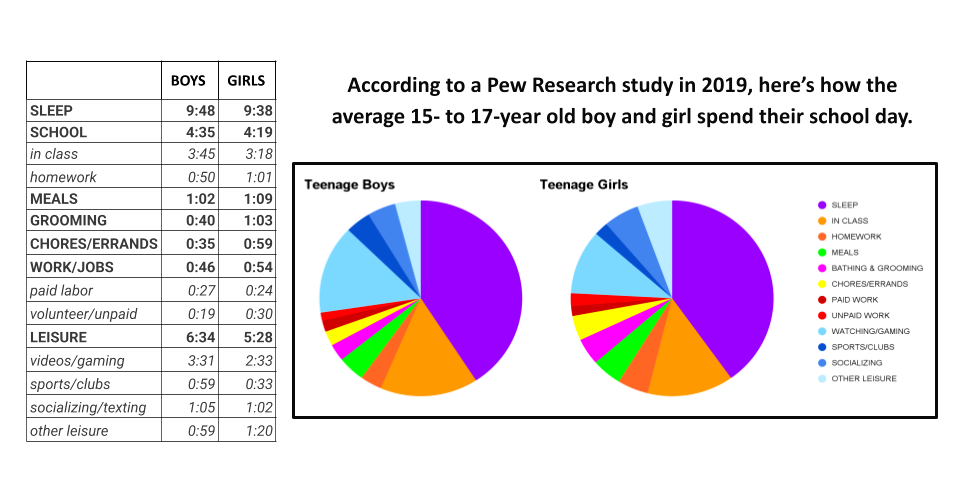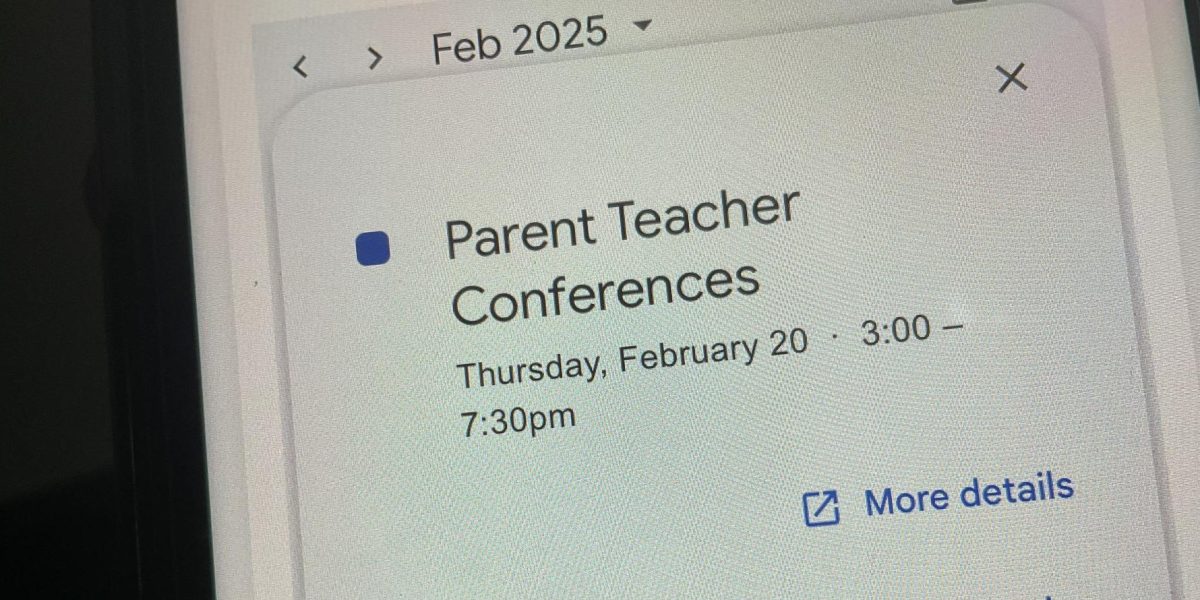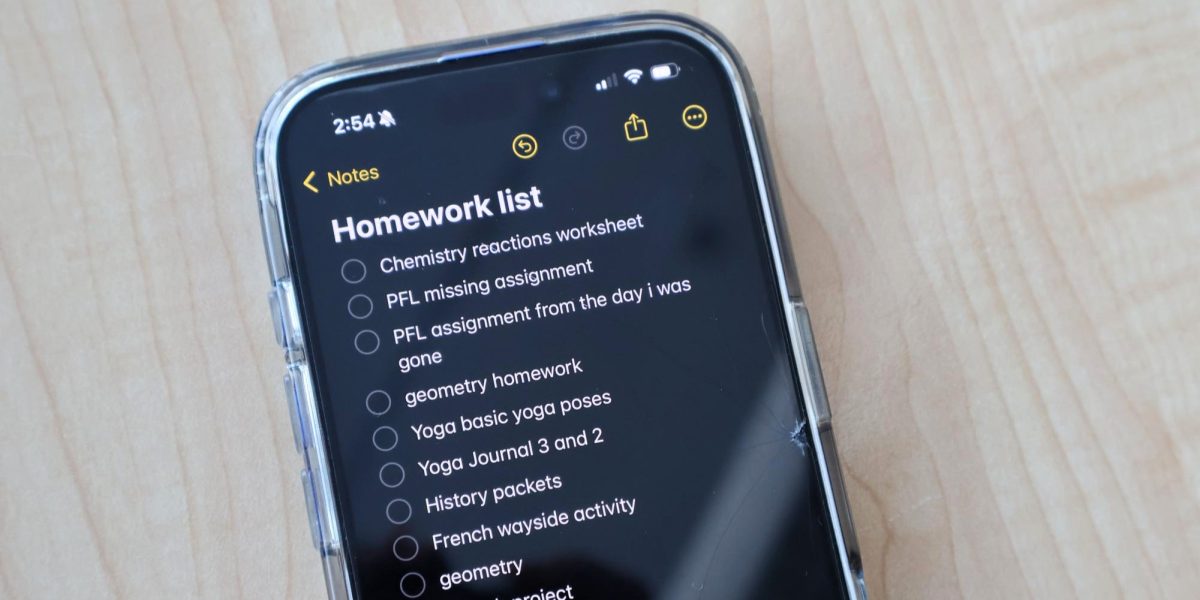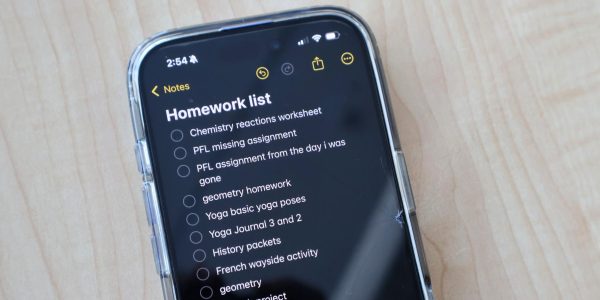Homework plays a significant part of almost every student’s life. According to a 2024 National Center for Education Statistics study, 95% of teachers assign students homework after nearly every class. This adds up: the Washington Post found teens receive an average of 2 hours, 45 minutes of homework every night. We’re in school for 7 hours and then have nearly 3 more hours of work on top of that.
Let’s do some math. According to the National Institute of Health, teens need 9-10 hours of sleep every night. That leaves 14–15 hours in the day for everything else. Take away 7 hours for school and 3 hours for homework, and teens only have 4-5 hours for everything else. This includes eating meals (which Pew Research Center found takes up a little over an hour of an average teen’s day), bathing and grooming (45 minutes for boys, an hour for girls), and taking care of family obligations and responsibilities (another 45 minutes to an hour).
In reality, all this leaves the average teenager with between 60 and 90 minutes for anything else. Friends. Hobbies. Exercise. Dating. Athletics. Driver’s Ed. Clubs. Relaxing.
Let’s be honest, though: this isn’t how teens actually spend their time. Practicing an instrument or rehearsing a play takes around 90 to 150 minutes every day, and the average athletic practice and training session takes two or three hours every day. The 22.5% of teens that also hold a job during the school year also need to fit in the 15-20 hours they work, and while most high school student labor happens on the weekend, nearly half of working teens say they have at least one Monday through Friday shift.

Something’s Got to Give
So where do teens find the time? Typically, one of two things (and often both) gets shortchanged: sleep and homework. While school, work shifts, extracurricular commitments, and obligations like church have strict start and end times, most teens don’t have someone monitoring whether their homework time or sleep time actually result in finished homework or rest.
While cutting down on sleep is the solution for many teens, it’s not sustainable. This lack of sleep affects the teen’s mood, focus, motivation, and sometimes even their health. This stress causes them to perform poorly in class, with teachers sniping at them about putting their head down, zoning out, or having a “bad attitude.” It’s at this point where most students think, if I’m going to just get yelled at anyway, I’d rather get some sleep and get yealled at for not doing my work.
Actual numbers bear this out: Pew Research discovered the average teen gets nearly the recommended 10 hours of sleep. However, though teachers and teens both report that teens receive an average of 2 hours, 45 minutes of homework every night, most teens don’t spend this much time on their homework. Instead, Pew found that they spend only around an hour every night on homework. How?
- They rush through assignments and don’t put in the work actually needed to complete the work the way the teacher wanted (i.e., the way that would actually lead to learning).
- They find a shortcut: generative AI, plagiarism, copying from a friend, and other methods most teachers consider cheating and most of us call “using our resources.”
- They don’t finish everything done and let some homework become late or missing.
Fighting a Losing Game
This is the homework problem in a nutshell: Teacher assigns work. Student stresses because they don’t have enough time for all their work. Student either sacrifices their sleep, health, and personal life to complete work, doesn’t complete the work, or does such a poor job on the work that it doesn’t help them learn at all. Teacher sees the student next class and is upset that the student is falling asleep, didn’t turn in their work, or did a terrible job on their work. Multiple this by eight classes.
Worse still, those that don’t finish all of their homework start to see the assignments pile up, and not just in one class. The stress of tons of homework in multiple classes is a huge factor for burnout in teens. A big reason homework causes stress is the pressure on students to complete everything on time. Most students already have busy schedules, and when they are stuck doing hours of homework at night, it leaves them feeling exhausted and overwhelmed.
Clearly, there’s a problem here. And it isn’t a new one.
Instead of putting the blame for this situation on “lazy students,” let’s look at the root of the problem: teachers assign the homework. Teachers decide that it needs to be done. Often, the purpose of homework is to help students practice what they learn in class or show their mastery, like with an assessment project. Teachers see homework as a helpful tool and believe they are helping students improve their grades and knowledge. That’s the purpose of a teacher: take the district-provided list of what students must learn and have them learn it.
The Work Itself Isn’t the Problem…
To this point, not all homework is bad. Take Band: “homework” for this music class typically looks like practicing your instrument for 30-60 minutes every night. This makes sense: practicing is the only way to master playing an instrument, and practicing on your own without other instruments playing to distract you helps you learn a song or technique better.
English is also another subject where some homework makes sense. Usually, reading a book is a solitary activity, and lots of people can only really get into reading if their in a very specific environment. Some people need absolute silence to read, and others need a little music or the audiobook. Some people can read anywhere, and others need to feel cozy and isolated. Reading also happens at a different pace for everyone: when a teacher reads an entire book chapter in class, the slow reader struggles to keep up, the fast reader starts feeling bored and impatient, and both readers would rather just do it themselves.
However, most classes just assign students the same work that they do in class. Math classes give out more practice problems. History classes give out readings, vocabulary, and short activities. Same with science and foreign languages. Even English classes where some homework makes sense give unnecessary work: we write essays in class and then have to write more essays as homework.
So here’s the simple solution: if it can be done in class and done better in class, then do it in class. No homework.
 “What do you mean you need seven days to do it?” (Hazel Mciver Oun)[/caption]
“What do you mean you need seven days to do it?” (Hazel Mciver Oun)[/caption]
Sure, lots of teachers would complain, but I’d ask them why. If their assignment really benefits learners, then they can prove it to their boss and keep it under 23 minutes. If they can’t do this, then why continue a system that ends with both students and teachers stressed and frustrated?
Homework can still be helpful for students, but only the stuff that actually helps should be given. Too much homework ends up doing the complete opposite of its intended purpose. Instead, it leaves students stressed, exhausted, and unhappy… all of which hurt overall academic performance. Schoolwork should help students burn brighter, not burn out.















































